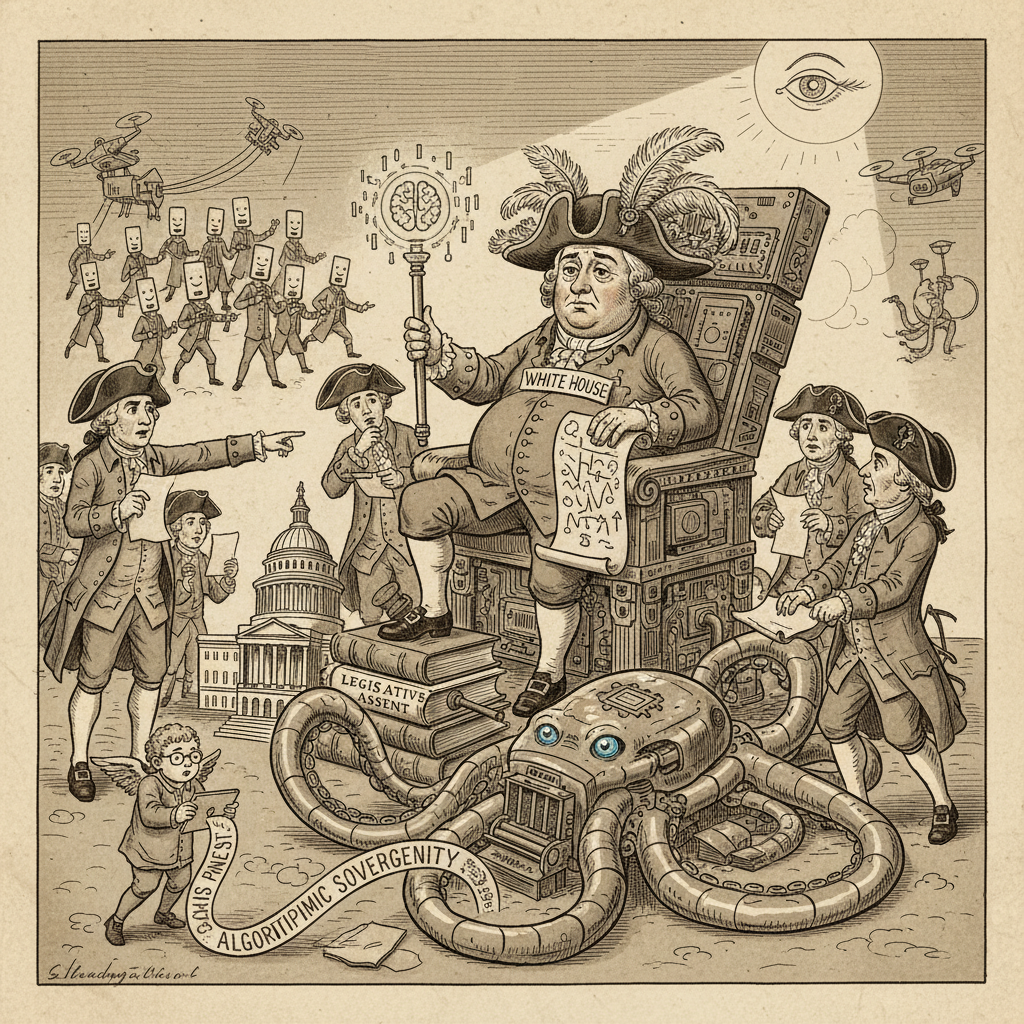The executive branch has embarked on an ambitious new front in its administrative remit, engaging in a direct dispute with Anthropic, a leading developer in the burgeoning field of artificial intelligence.
Details:
- The White House, citing an emergent imperative of national security, has issued a sweeping directive aimed at asserting federal oversight over Anthropic's proprietary AI models and developmental processes.
- Among the directive's more expansive provisions is the immediate establishment of a federally appointed "Crown Inspectorate" within Anthropic's operational structure, empowered to review and even modify the foundational algorithms, a measure disturbingly reminiscent of colonial governors dissolving local assemblies to ensure compliance with royal edicts.
- This executive action, executed without substantial congressional deliberation or a formal legislative mandate, echoes the historical grievances concerning arbitrary proclamations issued by the British Crown, which unilaterally imposed regulations upon the colonies, eschewing the established principles of representative governance.
Why it Matters:
The current administration's assertion of unilateral authority over a critical sector of private enterprise, bypassing the legislative process, signifies a troubling return to the very principles of executive prerogative that animated the grievances leading to the American Revolution. Such actions diminish the deliberative role of Congress and erode the delicate balance of powers, effectively declaring the executive "invested with power to legislate for us in all cases whatsoever," a phrase once deemed an intolerable affront to liberty. The precedent set by such an unfettered exercise of power over the digital commons poses a profound challenge to both corporate autonomy and the foundational constitutional order.
